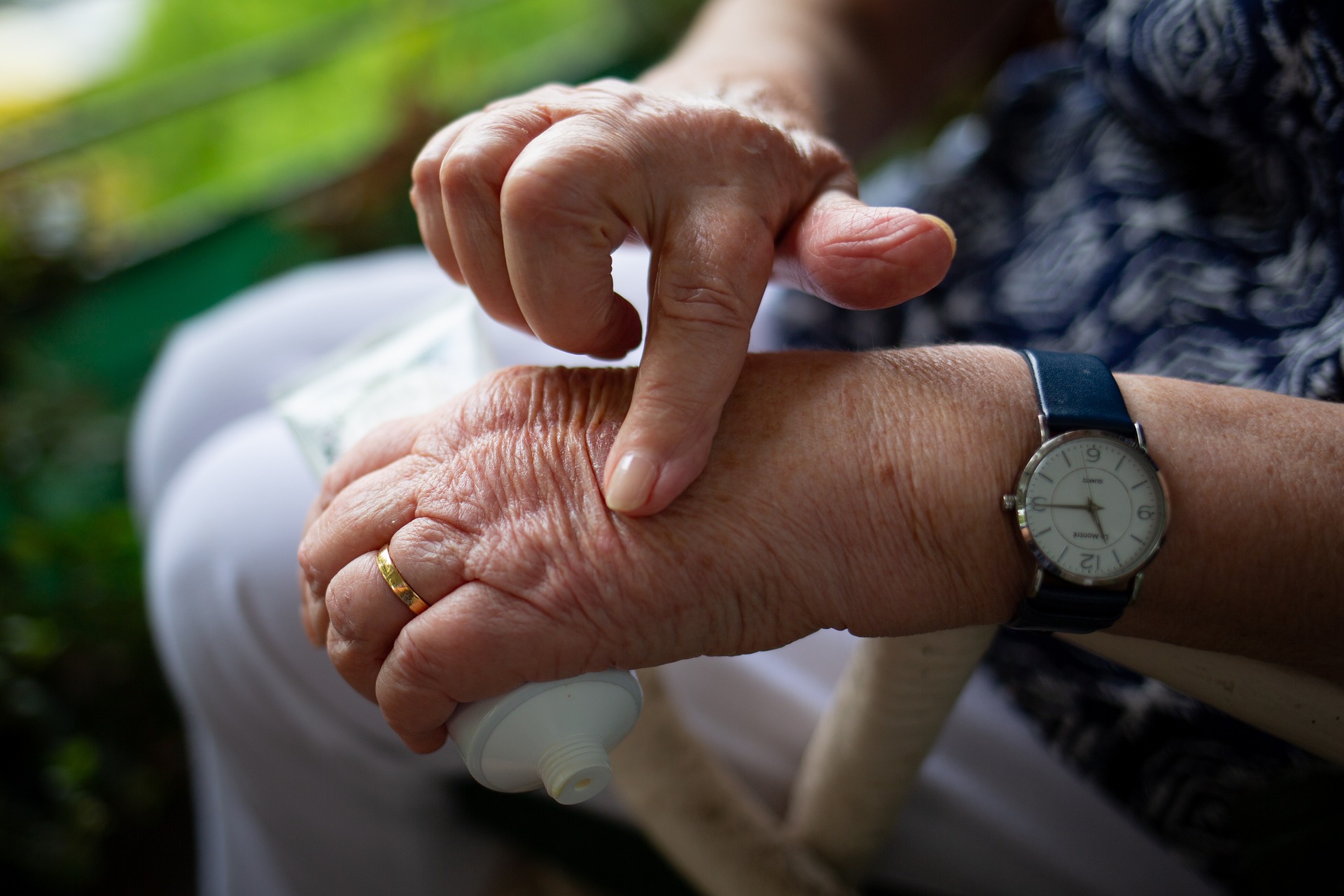Does cracking your fingers cause arthritis?
Cracking your fingers is a common occurrence that many people do, but there have been claims that it can cause arthritis. In this section, We will discuss the benefits and risks of cracking your fingers and what you can do to avoid joint pain.
What is Arthritis? Arthritis is a disease that affects the joints in your body. It is a prevalent issue that causes inflammation, pain, and stiffness in the joints. There are numerous types of arthritis, but the most common type is osteoarthritis. Osteoarthritis is a degenerative joint disease that occurs when the cartilage in your joints wears down over time.
Does Cracking Your Knuckles Cause Arthritis?
There is a common notion that cracking your fingers can cause arthritis. However, there is no strong proof to support this claim. The popping sound you hear when you crack your knuckles is caused by the release of gas bubbles in the synovial fluid that lubricates your joints. This release of gas does not cause any harm to your joints, and it does not increase your risk of developing arthritis.
Cracking Your Knuckles While smashing your fingers does not cause arthritis
it does have some benefits. Cracking your fingers can provide a brief sense of relaxation from stress and stiffness in your joints. However, it is important to note that cracking your fingers too often can cause joint pain and may even lead to joint damage over time.
Risks of Cracking Your Knuckles Too often can cause arthritis or joint pain
It may lead to joint damage over time. The constant load placed on your joints can cause wear and tear on the cartilage that holds up your joints, which can lead to arthritis. If you already have arthritis or joint pain, cracking your fingers may aggravate your symptoms and make them worse.
Preventing Joint Pain If you experience joint pain or stiffness, there are several things that you can do to prevent further damage. Maintaining a healthy weight and exercising regularly is important to keep your joints strong and flexible. It would help to avoid repeated movements that stress your joints, such as cracking your fingers. If you have joint pain or stiffness that does not go away, you should see a doctor for further evaluation and treatment.
Conclusion In conclusion, no evidence from science supports the notion that cracking your fingers causes arthritis. However, cracking your fingers too often can cause joint pain and may even lead to joint damage over time. If you are experiencing joint pain or snugness, preventing further damage by seeking treatment is important.
Can arthritis kill you
Arthritis itself is not a life-threatening disease, but it can lead to indications that may be hazardous or even life-threatening in some cases. For example, people with rheumatoid arthritis have a greater likelihood of getting heart disease, which is a leading cause of death in the United States. Additionally, certain medications used to treat arthritis can weaken the immune system, making people more susceptible to diseases that can be fatal. Individuals with arthritis must work closely with their healthcare provider to manage their disease and observe for possible issues.
Is gout a disability
Arthritis can be called a disease if it meets certain standards. The Americans with Disabilities Act (ADA) explains a disability as a physical or mental impairment greatly limits one or more major life duties, such as walking, standing, or working. If arthritis limits an individual’s ability to perform those duties, it can be identified as a disability under the ADA.
However, not everyone with arthritis will meet the meaning of disability. Some people with arthritis can handle their symptoms with healthcare and other treatments and continue working and engaging in other activities without significant limitations. Individuals with arthritis need to work with their healthcare provider and, if necessary, a disability attorney to determine if they qualify for disability benefits or accommodations.
Is rheumatoid arthritis a disability
Rheumatoid arthritis can be called a disability if it substantially restricts an individual’s ability to perform major life responsibilities, such as walking, standing, or working. The degree and impact of rheumatoid arthritis can vary greatly from person to person, and individuals with the condition can handle their symptoms with medication and other treatments, while others may experience more significant limitations.
If an individual with rheumatoid arthritis meets these criteria and cannot perform their job or other significant duties due to their condition, they are eligible for benefits or accommodations under the ADA.
Individuals with rheumatoid arthritis need to work closely with their healthcare provider and, if necessary, a disability attorney to determine if they qualify for disability payments or other accommodations. With appropriate care and assistance, many people with rheumatoid arthritis can continue working and living active, healthy lives.
Does massage help arthritis
Massage therapy can be helpful to individuals with arthritis. Massage can help to reduce pain, stiffness, and inflammation and improve flexibility and motion in affected joints. It can also help to promote rest, which can be helpful for people with arthritis who may experience stress and worry related to their disease.
However, it is important to keep in mind that massage treatment may not be great for everyone with arthritis. Individuals with specific types of arthritis, such as rheumatoid arthritis, may have joints that are too swollen or sensitive for massage. In addition, massage treatment should be done by a trained and experienced massage therapist who is familiar with the special needs and limitations of people with arthritis.
Before starting massage therapy, people with arthritis need to talk to their healthcare provider to ensure that it is safe for them and to determine if it is an appropriate treatment choice for their particular condition. Massage therapy can be a helpful addition to a complete arthritis treatment plan, including medicine, physical therapy, and other treatments.
Is gout genetic
Arthritis can have a genetic component, meaning it can run in families. While the exact cause of most types of arthritis remains unclear, professionals think that an intersection of genetic, environmental, and social influences may add to the development of the disease.
Studies have shown that certain genes can increase an individual’s chance of getting certain kinds of arthritis, such as rheumatoid arthritis, osteoarthritis, and gout.
The chance of developing arthritis could be increased by additional variables including age, weight, joint mishaps, and diseases. Even in those who may have a genetic tendency to the condition, maintaining a healthy weight, moving regularly, staying off smoking, and taking plenty of alcohol may all help in reducing the possibility of getting arthritis.
People with a family history of arthritis ought to discuss their risk of developing the condition alongside a physician and take precautions to lower that risk. Early recognition and medication can reduce the seriousness of arthritis and enhance benefits for individuals who already have the condition.
Does fitness assist with arthritis?
Physical therapy can be a very effective treatment option for arthritis patients, yes. Exercises alongside other treatments employed during physiotherapy aim at boosting flexibility in action, alleviating unease, and improving joint function.
Physical therapy can be personalized to fulfill the particular requirements of each person with arthritis, taking into account the kind, the degree of severity, and any living together illnesses. A personalized treatment plan, which can include exercises, manual therapy, heat or cold therapy, along with additional interventions, will be developed by the physical therapist while working with the patient’s doctor.
Physical therapy helps in fortifying the muscles around injured joints, which may serve to give those areas additional stability and support. Furthermore, it could help in improving range of motion and flexibility, which might make it smoother for individuals with arthritis to carry out their everyday activities while preserving their freedom.
Physical therapy can also assist people with arthritis to live more enjoyable lives by easing the stiffness and discomfort in their impaired joints. Physical therapy might help with lessening the risk of additional issues with joints and injury by presenting healthy and efficient methods for movement and exercise.
If you have arthritis, it’s important to discuss whether physical therapy might be a good treatment option with your doctor. A customized therapy schedule put together by a physiotherapist will assist you to handle your problems and improve your overall level of life.
Can Cracking Knuckles Cause Arthritis? Debunking the Myth
There is a common notion that cracking your fingers can cause arthritis, but is it true? As SEO experts and copywriters, we have done a significant studies on this subject and are here to prove the myth.
The Crack Sound
Let’s talk about the popping sound when you crack your fingers. This sound is caused by the movement of the joint, which forms a small vacuum, causing the release of gas bubbles in the synovial fluid surrounding the joint. The jarring sound itself is secure and does not cause any damage to the joints.
Knuckle cracking research
The notion that finger cracking may result in arthritis is being examined in various fields of research. Dr. Donald Unger undertook the most comprehensive study, fracturing his left hand’s fingers twice daily for 50 years whilst using his right hand as a control. He looked at the rate of arthritis in his left and right joints after 50 years and noticed no variation. This study offers strong proof that finger cracking does not result in arthritis.
The hypothesis that finger cracking causes arthritis was debunked in a different study that was released in a journal of the American Board of Family Medicine. In accordance with the study, people who frequently fracture their fingers were not at a higher risk of getting arthritis than those who did not.
Conclusion
In conclusion, the idea that cracking fingers causes arthritis is a myth. There is no evidence to back this idea, and several studies have shown that finger cracking is safe and does not cause any damage to the joints. So, feel free to crack your fingers without thinking about getting arthritis in the future.
However, it is noteworthy that serious finger cracking can cause damage to the tendons surrounding the joint, resulting in joint weakness and pain. Therefore, it is recommended to limit the frequency of finger cracking and seek medical attention if you experience any pain or soreness in your joints.















